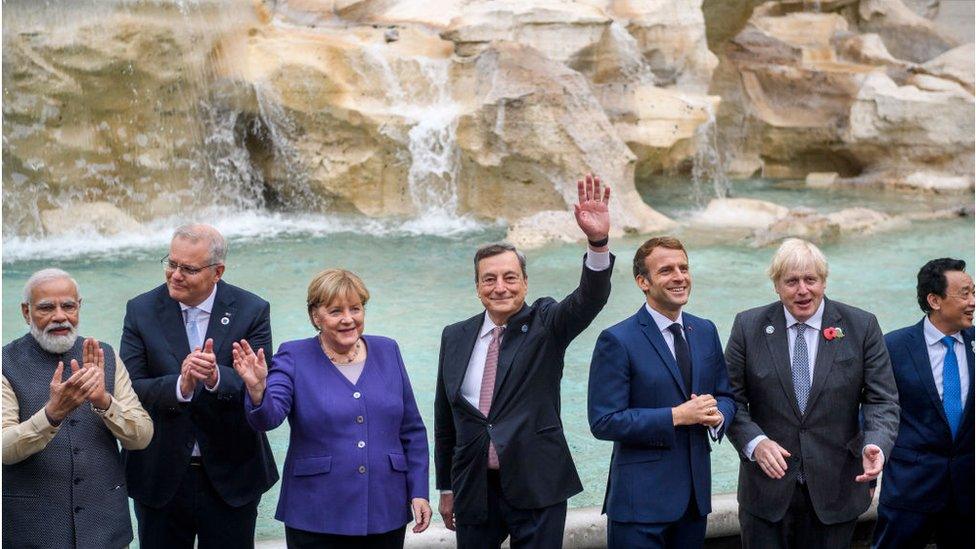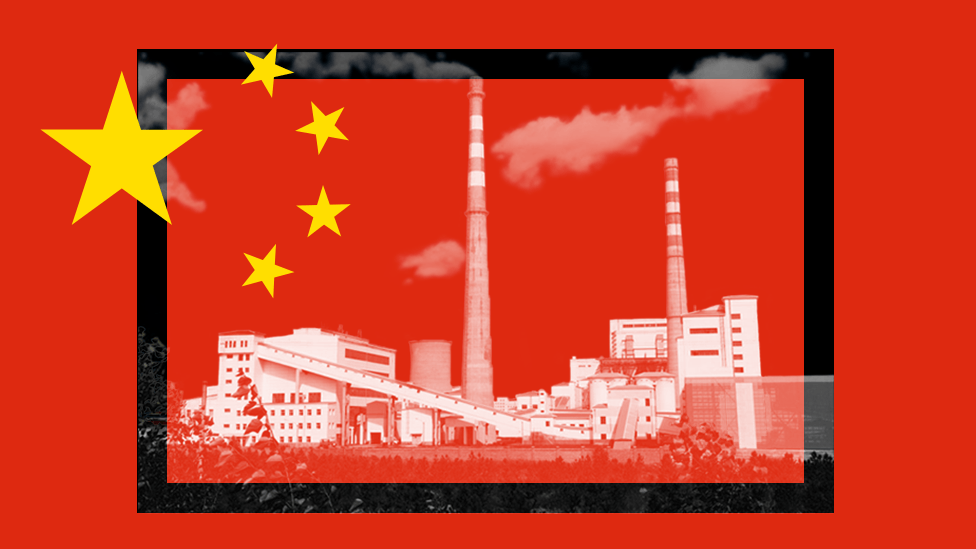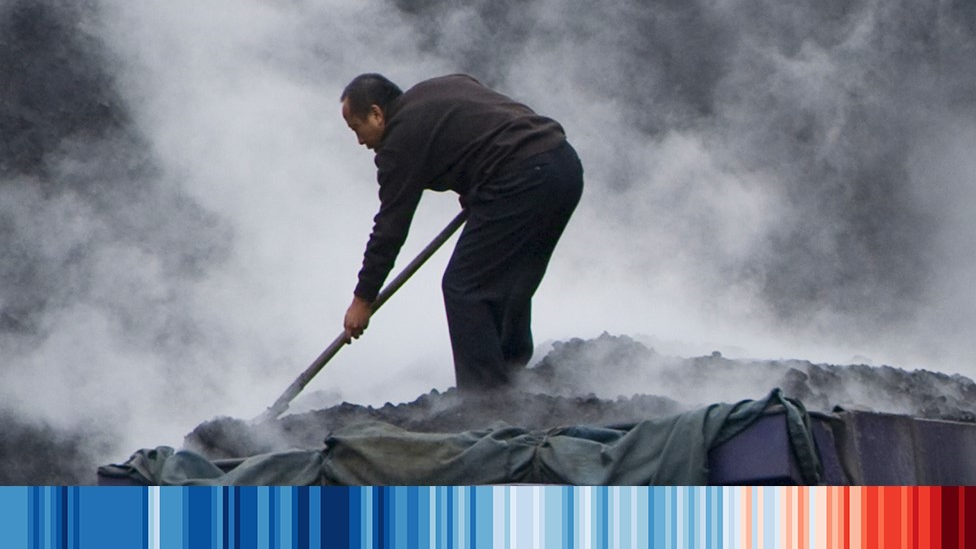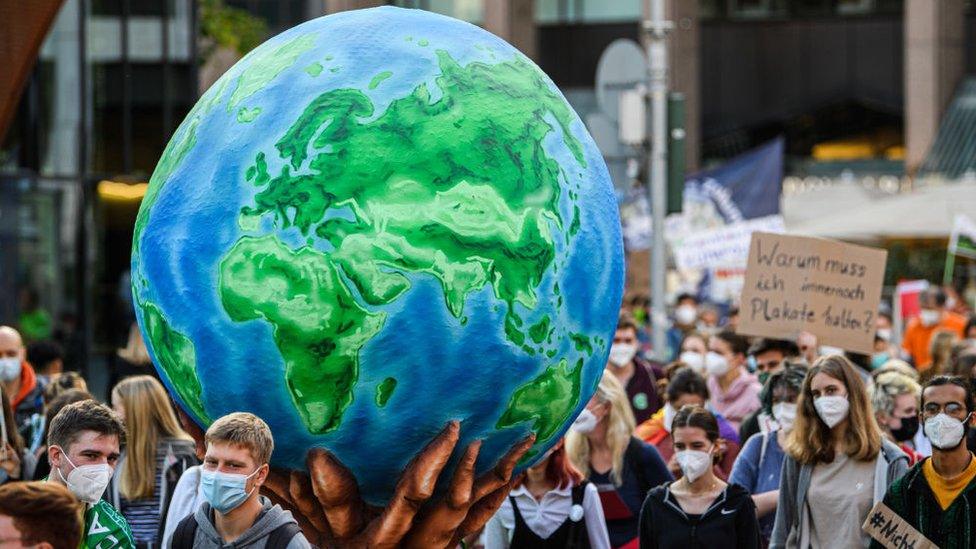G20 pledge climate action but make few commitments
- Published

Leaders posed for a picture by the famed Trevi Fountain on Sunday morning
The leaders of the world's richest economies have agreed to pursue efforts to limit global warming with "meaningful and effective actions".
But the agreement from the G20 summit in Rome made few concrete commitments, external, disappointing activists.
Host nation Italy had hoped that firm targets would be set before the COP26 summit in Glasgow, which has now begun.
UK PM Boris Johnson, who is hosting COP26 said leaders' promises without action were "starting to sound hollow".
"These commitments... are drops in a rapidly warming ocean," Mr Johnson said.
Watch US President Biden say Russia and China "basically didn't show up" on climate matters
US President Joe Biden said there were a "series of very productive meetings" at the G20, adding that he was "looking forward to continuing to make progress" on climate issues in Glasgow.
He also said China and Russia - who are among the world's biggest polluters - "basically didn't show up" on matters of the climate, which was "disappointing".
The G20 group, made up of 19 countries and the European Union, accounts for 80% of the world's emissions.
The communiqué, or official statement released by the leaders, also makes no reference to achieving net zero by 2050.
Net zero means reducing greenhouse gas emissions as much as possible, until a country is absorbing the same amount of emissions from the atmosphere that it is putting out.
Italian Prime Minister Mario Draghi did however say in his closing statement that all of the G20 countries are committed to reaching the target by the mid-century. Scientists say this must be achieved by 2050 to avoid a climate catastrophe, and most countries have agreed to this.
However China - the world's biggest polluter - and Russia have pushed that target out to 2060.
Neither China's President Xi Jinping, nor Russia's Vladimir Putin were in Rome for the conference, instead joining via video link. Their absence raised concerns that a deal would not be easy to reach.
Mr Putin said his plan was to "not just to reach carbon neutrality, but to make sure that within the next three decades, the amount of greenhouse gas emissions in Russia is lower than, for instance, that of our neighbours and colleagues in the EU."
The communiqué does pledge to stop financing new, unabated coal plants internationally by the end of this year - a strong message to coal-reliant nations such as China, Russia and India. But the G20 leaders stopped short of agreeing to end coal power in their own nations.
Mr Draghi said that they were closer to reaching the goal of providing $100bn a year in climate financing to developing countries - a key pledge which has been pushed out to 2023.
António Guterres, the UN's secretary-general, tweeted that he was leaving Rome with his "hopes unfulfilled" but not buried.
Allow X content?
This article contains content provided by X. We ask for your permission before anything is loaded, as they may be using cookies and other technologies. You may want to read X’s cookie policy, external and privacy policy, external before accepting. To view this content choose ‘accept and continue’.

Mr Johnson said it had been a "reasonable" G20, with some progress made, but there was still so much work to do that "right now, the Paris agreement and the hope that came with it is just a piece of paper".
Leaders are due to leave Rome and arrive in Glasgow on Sunday night ahead of their high-level climate talks on Monday at COP26.
Mr Johnson had a gloomy message ahead of the conference: "If Glasgow fails, then the whole thing fails."
Activists had expressed their disappointment over the communiqué, feeling it was not tough enough.
Oscar Soria, of the activist network Avaaz, told the agency there was "little sense of urgency" coming from the group, adding: "There is no more time for vague wish-lists, we need concrete commitments and action."
However, others have been keen to paint the G20 as a stepping stone to COP26, which will see delegates from nearly 200 countries gather to discuss cutting carbon emissions.
A US official told reporters the G20 was about "helping build momentum" before the leaders head to Glasgow, while France's President Emmanuel Macron told newspaper Journal du Dimanche that "nothing is ever written before a COP".
Watch Boris Johnson warn "if Glasgow fails, then the whole thing fails"
On Saturday, the first day of the two-day summit, focus was on Covid and the economy, with an agreement being reached on a global tax rate which will see the profits of large businesses taxed at least 15%.
It follows concern that multinational companies are re-routing their profits through low tax jurisdictions.
After years of talking, the planet is now at least 1.1C hotter than the pre-industrial level. Climate scientist want warming restricted to 1.5C to prevent climate catastrophe.

COP26 climate summit - The basics
Climate change is one of the world's most pressing problems. Governments must promise more ambitious cuts in warming gases if we are to prevent greater global temperature rises.
The summit in Glasgow is where change could happen. You need to watch for the promises made by the world's biggest polluters, like the US and China, and whether poorer countries are getting the support they need.
All our lives will change. Decisions made here could impact our jobs, how we heat our homes, what we eat and how we travel.
- Published29 October 2021

- Published12 November 2021

- Published31 October 2021
